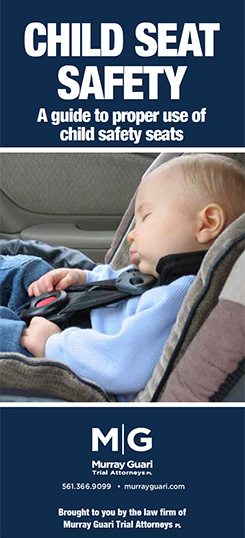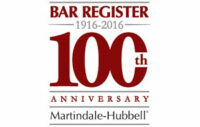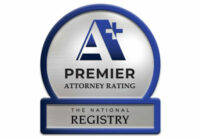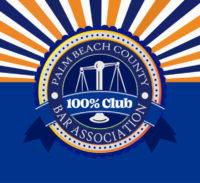CHILD SEATS SAFETY
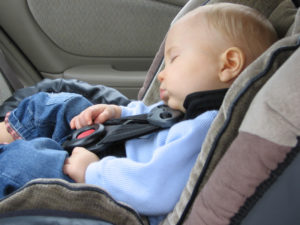
Brought to you by the law firm of Murray Guari Trial Attorneys
How Important is a Child Seat?
How important is a child seat? Every day in Florida, approximately 770 auto accidents occur. According to the state of Florida crash records database, 281,340 auto crashes occurred in 2012. Over 3,480 children between the ages of newborn to four years
old were injured in these crashes. Eleven children ages newborn to four were killed. To protect your child, the proper use of child seats – and later – booster seats and seatbelts – is critical. It is also required by Florida Statute.
First Things First
Expecting parents should research and choose a child safety seat – and practice installing and using it – before the baby arrives because the proper use of this seat is so important. You do not want to wait until the busy first days of your child’s life. It is also important to note that airbags were designed to save adults, but can do great harm to children. This is why the back seat is used until children are old enough and large enough to tolerate the release of an airbag should an accident occur. The American Academy of Pediatrics and the NHTSA recommend that children be at least 13 years old before riding in the front passenger seat.
Infant Seat vs. Convertible Seat
Both types of seats are safe for your child, and safe for a newborn to ride in. The difference in these seats is that the infant seat is smaller and your newborn will fit more snugly in the seat. But once the baby grows, you’ll need to purchase another seat. The convertible seat will work for newborns through approximately 40 pounds.
Guidelines for Child Safety Seats
Here we provide some information about child safety seats that is important for all parents to know. It is estimated that 7 out of 10 parents improperly install their child seats. You can have your seat evaluated and receive instructions for proper use by contacting one of several organizations that offers this service. This includes the Palm Beach County Sheriff’s Office and Palm Beach County Fire Rescue. Call to find out when and where they are performing the evaluations. You can also visit www.usa.safekids.org to find locations.
Here are the Child Restraint Requirements in Florida –
Every operator of a motor vehicle driven on Florida roads must provide for the protection of any child, 5 years of age or younger, by using a crash-tested, federally approved car seat.
For children up to 3 years old, the restraint must be a separate carrier or a vehicle manufacturer’s integrated child seat. Beginning January 1, 2015, children aged 4 through 5 years, a separate carrier, an integrated child seat, or a child booster seat is required. For passengers age 6 through 17 years, a seat belt must be used while riding in a motor vehicle.
Choosing a Seat
There are dozens of brands and no one brand that is “best” or “safest” – but you can compare child seats based on “ease of use” by visiting the National Highway Traffic Safety Administration website, www.nhtsa.gov. Also, the American Academy of Pediatrics has posted a comprehensive 2014 Car Seat Guide for Families on their website. The URL for this page is: www.aap.org.
You should also do your own research by speaking to friends and coworkers about child seats they’ve used, and going online to see if there are any recalls on the brand or model you have purchased or are considering. You can also find out if a child seat has been recalled by calling the Auto Safety Hotline at 888-327-4236.
Here are a few things to look for when selecting a child seat.
- A seat that meets all federal motor vehicle standards
- A seat that is easy to use and has clear, understandable instructions
- A seat whose attachments are compatible with your car’s backseat
- Do not use a “pre-owned” car seat that you do not have instructions for, or one that doesn’t have the model number and manufacturer noted. If a seat has any visible cracks, discontinue use immediately
Last but not least, set a good example for children and teens by ALWAYS using your seatbelt and not talking or texting on the phone while driving. Demonstrate these safety practices so that your children will practice safe habits, too
Child Passenger Safety Tips:
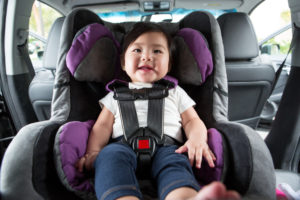 Always read the child seat instructions and the car owner’s manual before using a child safety seat.
Always read the child seat instructions and the car owner’s manual before using a child safety seat.
Do not use a pre-owned child seat that you do not have printed instructions for.
There are millions of vehicles on the road with lap only seat belts in the rear seat. We now know that lap belt only restraint systems can cause severe abdominal and spinal cord injuries in crashes and even near-crashes. Do not allow a child to ride in the back seat with only a lap belt. You can take your vehicle to an auto dealer and ave
it retrofitted with shoulder strap belts.
A Note About Booster Seats
Booster seats are very important, and unfortunately – underused. The National Highway Traffic Safety Administration (NHTSA) relays this information:
- Approximately 60% of children between the ages of four and seven who should be riding in a booster seat are not placed in one.
- Many parents are unfamiliar with the risks of not using a booster seat, or unaware of the benefits of using one.
- Booster seats raise a child up so that safety belts fit properly. The NHTSA provides a downloadable, printable booster seat guide on their website, www.nhtsa.gov.
Consumer Safety – Videos and Literature
The personal injury law firm of Murray Guari Trial Attorneys PL is committed to the safety and awareness of South Florida residents and their families. In addition to providing child passenger safety information for parents via our outreach program with local schools, we also provide informative, helpful videos. These videos are designed to alert and inform consumers about important topics such as uninsured motorist coverage and safe driving. These brief, highly beneficial videos can be viewed by going to the home page of our website –
www.murrayguari.com
Thank you for your commitment to safety, and to keeping children safe. If you would like more copies of this brochure, or our “Auto Accident Tips” card to keep in your glove box, you may request them from our office by calling 561-366-9099.


